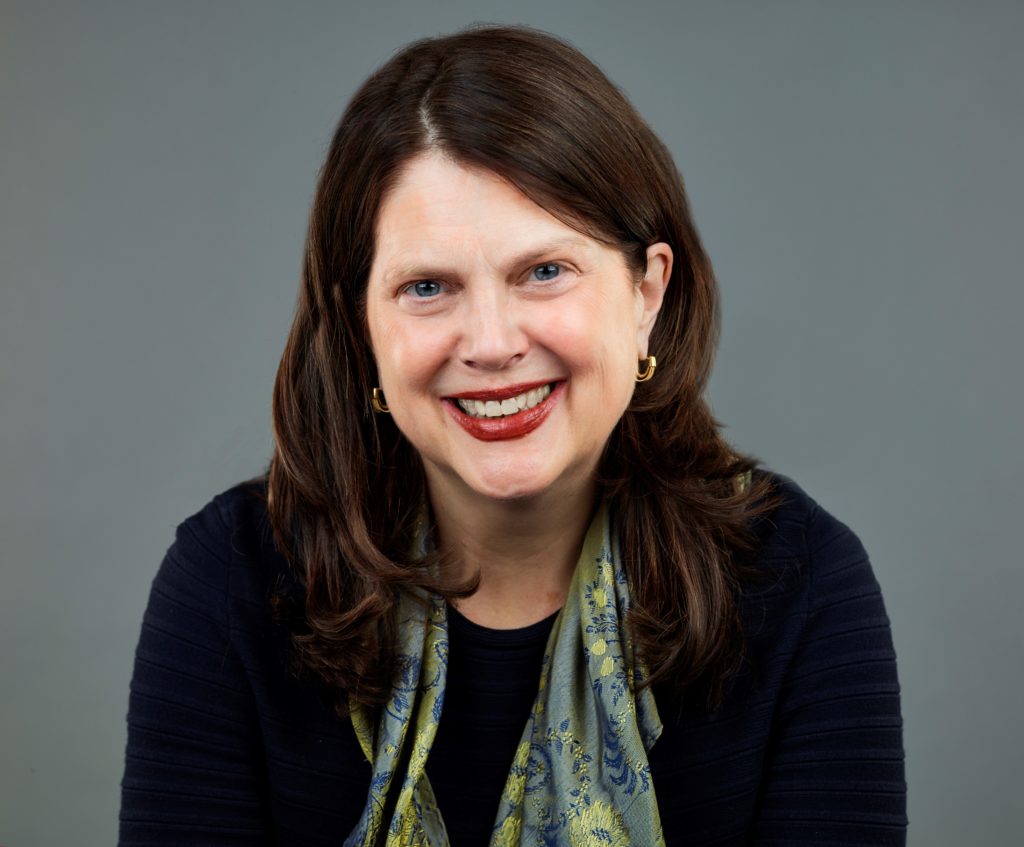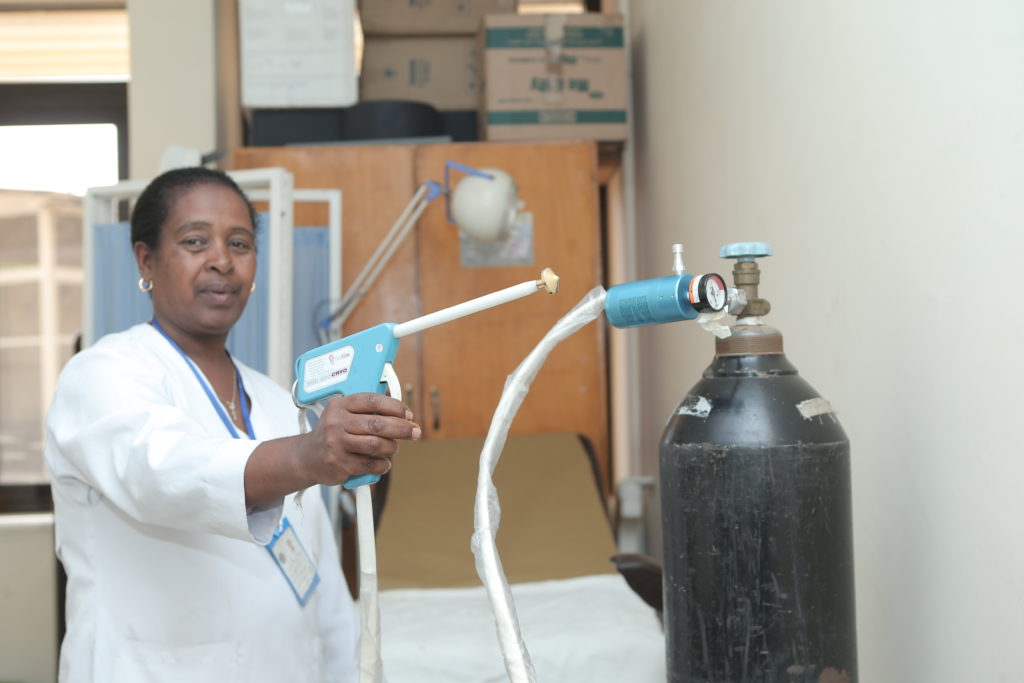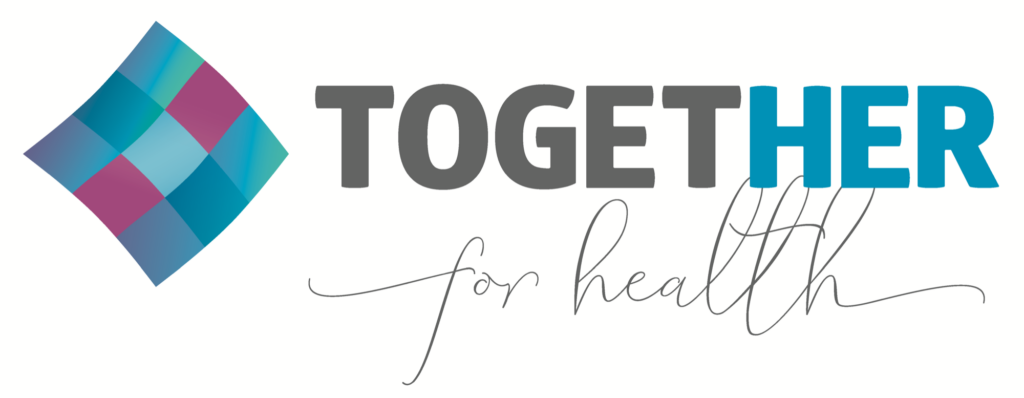The TogetHER Interview: Lois Quam, President & CEO of Pathfinder International

November 10, 2020
The impact of COVID-19 on global cervical cancer prevention efforts has been wide-ranging, with unclear long-term ramifications. Our new TogetHER Interview series provides an opportunity for key leaders in global cervical cancer control to discuss current challenges and provide perspective on where the field needs to go from here.
This installment of the TogetHER Interview series features Lois Quam, President and Chief Executive Officer of Pathfinder International.
Header photo credit: Ricardo Franco/Pathfinder International. Headshot photo credit: Pathfinder International.

How have you and your organization been impacted by and adapted to COVID-19?
When the pandemic became our reality in March, and countries began to mandate lockdowns, we knew that locking down our own work was not an option. Women and girls in 17 countries were counting on us.
We were able to continue our work because Pathfinder staff are nationals of the countries they serve. We only had one American evacuate when the pandemic hit. Our close partnerships with governments also enabled us to assist in quickly adapting services to curb the spread of COVID-19 and engage in effective advocacy, which resulted in sexual and reproductive health services staying open during the pandemic.
Our local teams helped to reorganize services to adhere to physical distancing and support remote service delivery. In India and Kenya, our programs tested out telecounseling on sexual and reproductive health. In Mozambique, community health workers conducted home visits outside. They got the message out—about how women and girls could access sexual and reproductive health care during the pandemic. They proactively planned for supply disruptions. The pandemic is far from over. We continue to work through our local teams and health system partners to ensure women and girls remain at the center of our COVID-19 response.
What concerns you most about women’s health in low-resource countries during the pandemic? What is your organization doing about it?
We are most concerned about the setbacks this pandemic could have on the potential of women everywhere. At Pathfinder, we know that healthy, empowered women drive healthy, empowered communities. We also know that women are on the frontlines of this pandemic—from being 70 percent of the frontline health workforce to the main caregivers in their families and communities. We are seeing the secondary effects of the pandemic on women—increases in violence against women, women being the first to give up paid work to care for their families, increases in adolescent pregnancies, girls not going to school.

“At Pathfinder, we know that healthy, empowered women drive healthy, empowered communities. We also know that women are on the frontlines of this pandemic.”
Photo credit: Pathfinder International

We’ve advocated with partners in several countries for sexual and reproductive health care, including gender-based violence support, to remain open during the pandemic. We’ve moved our health provider trainings virtual and helped to get information out about prevention, testing, and treatment for COVID-19, while providing information on sexual and reproductive health.
Sexual and reproductive health care, including ready access to modern contraception, empowers women and girls to make the most important decisions in their lives. Our communities, our countries, and our entire world depends on empowered women and girls to drive development, peace, stability, and growth. We must not let this pandemic limit their potential and progress.
How do you see cervical cancer prevention – the HPV vaccine and screen-and-treat – coming back after the pandemic? What can we do now to prepare for the resumption of services?
Where services have stopped, it is critical that we find ways to resume them as soon as possible. What I know most about cervical cancer prevention during the pandemic comes from Pathfinder’s experience in Ethiopia, where these services were deemed essential by the government and therefore able to continue in some capacity. Despite this, fear of contracting the virus keeps many women who need these services at home. That’s why we have been working through mass media to raise awareness about the availability of these services. This type of public messaging must continue as services resume elsewhere.
We have also conducted remote trainings for health providers on screening and treatment, building the skills they will need as services resume at full capacity. We must continue to support health providers in administering these life-saving services, encouraging countries to learn from each other about what types of virtual trainings work best. For places where schools are used as a platform to provide HPV vaccinations, we should prepare for those vaccination efforts as schools reopen.
What is something you have learned during COVID-19 that makes you hopeful?
Early on, it was predicted that the pandemic would have devastating impacts in the sub-Saharan African countries where we work. While some countries have seen surges in certain communities, the case counts and COVID-19 deaths have not reached near the scale predicted. This could be for several reasons, including a larger youth population and low testing capacity. But it could also be because of the evidence-based public health guidelines employed and experience of these countries with using public health measures to contain the spread of a disease. I think we have a lot to learn from our African partners.
We’ve also seen numerous successes with containing the virus in countries where women lead—New Zealand may be the most famous—but Yvonne Aki-Sawyerr, the mayor of Freetown, Sierra Leone, and Rwandan cabinet member Clare Akamanzi are great examples too. I think this is testament to the potential of women leaders and a resounding call to invest in women and girls. One way to do this is through sexual and reproductive health programs that allow women to make key decisions throughout their lives about their bodies and their futures.
Read more on Pathfinder International’s cervical cancer program in Ethiopia.
Read more about Pathfinder International’s response to COVID-19.
Interested in reading more TogetHER Interviews with leaders in the global cervical cancer response? Click here for the full list.

Lois Quam is the president and chief executive officer of Pathfinder International, a leader in sexual and reproductive health and rights for women and youth with offices in more than 15 countries. Lois has served as a senior leader in the non-profit, public, and corporate sectors, bringing a lifelong commitment to women’s empowerment, universal healthcare, and the environment in the U.S. and abroad. Before joining Pathfinder, Lois served as chief operating officer of The Nature Conservancy and in 2011 President Obama selected Lois to head his signature Global Health Initiative at the Department of State. Prior to her work in the public sector, Lois was the founding CEO of Ovations, a division of the FORTUNE 50 global corporation UnitedHealth Group. Lois has been named three times to FORTUNE’s list of the most influential women leaders in business. Quam serves on the Board of Directors for the Commonwealth Fund, the Board of Director for Compassus, the Board of Directors for theguardian.org, and the Board of Trustees for the Center for American Progress. Quam previously served on the Board of Editors of the British Medical Journal. A Rhodes Scholar, Lois has degrees from Oxford University and Macalester College. She speaks English and Norwegian and grew up in rural Minnesota.
